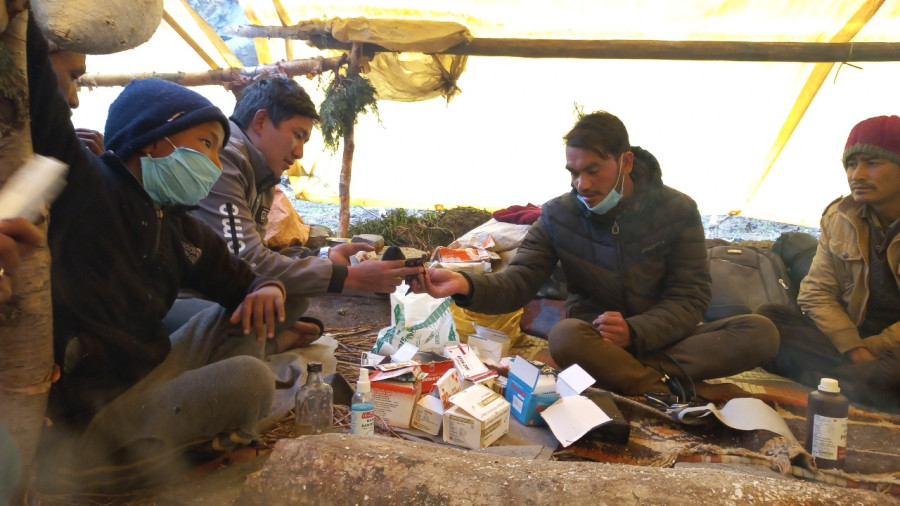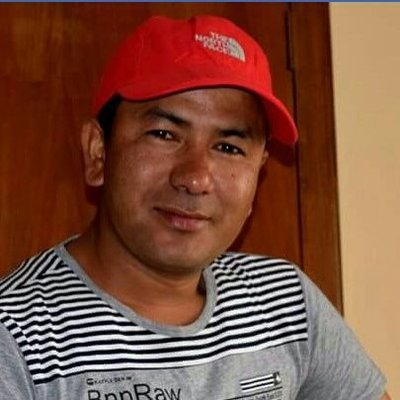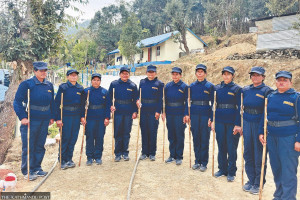Sudurpaschim Province
Bajhang local unit dispatches health teams to highlands to aid yarsagumba pickers
Many people die from easily treatable ailments in the highlands due to lack of timely medical care.
Basant Pratap Singh
Saipal Rural Municipality, a remote local unit in Bajhang district, has dispatched health workers to the highlands where thousands of yarsagumba (Cordyceps sinensis) collectors have gathered to forage for the highly-priced caterpillar fungus.
This is the first time that a local unit has sent health teams to the highlands of Bajhang for the welfare of the collectors.
Every year a couple of deaths are reported among the pickers in the Bajhang highlands for a lack of timely medical attention to easily treatable ailments such as fever, common cold and diarrhoea, among others. This year, the collectors’ health is more at risk as the Covid-19 pandemic rages across the country, says Lokendra Jethara, the health unit chief of Saipal Rural Municipality.
The yarsagumba collectors have over the years requested the rural municipality to send health teams with them on their forages to the highlands. Nara Bahadur Singh, who lost his uncle four years ago in the highlands during the foraging season, says that deaths caused by treatable ailments can be easily avoided now that the health teams are deployed to the highlands.
“We have lost people to minor illnesses such as fever and upset stomach,” said Singh, a local man of Jayaprithvi Municipality-1. “My uncle died of a stomach ache that turned worse for want of treatment. Having the health team with us in the highlands comes as a huge relief to us.”
Yarsa collectors in the previous years had to walk for three to four days to reach the nearest health post during a health emergency.
“The thought that there was no help nearby used to scare us. We had to walk for days before any medical help was available,” said Singh.
The yarsagumba picking season begins from mid-April to mid-July every year. Thousands of foragers spend almost three months living in temporary tents on high altitude slopes.
The collectors are exposed to harsh weather and living conditions in the highlands and have no access to medical care where minor illnesses can turn fatal.
According to Saipal Rural Municipality, at least three pickers died in the highlands of the local body in the last fiscal year.
According to yarsagumba collectors, accidents on slippery slopes are common in the snow-covered steep terrain and in the absence of a health camp in the highlands, they have had to carry many critically injured friends to the nearest health post.
“Many died while being carried to the health post,” said Soni Bohara, another picker from Saipal Rural Municipality. “But now with the health team among us, we will not have to worry about getting medical help.”
Saipal Rural Municipality has deployed two health teams that will visit seven highland areas.
Jethara, the health unit chief of the rural municipality, says the health workers deployed to the highlands of the district have also been raising awareness about the Covid-19 pandemic and the fatality of its second wave.
“The highlands are crowded with yarsa collectors and an outbreak of Covid-19 would be a disaster,” Jethara said. “The health workers have examined and treated around 500 people with minor illnesses in the highlands in the past two weeks. The health teams have been asked to look out for coronavirus symptoms so that if anyone gets infected, they can provide timely treatment.”
Thousands of people from Bajhang and other neighbouring districts have reached the highlands to collect yarsagumba amidst the second wave of coronavirus in the country.
In mid-April last year, the district authorities had put a ban on yarsagumba collection amid the pandemic. But despite the ban, by mid-June, hundreds of yarsa pickers from Jayprithvi, Bungal, Chhabis Pathibhera, Surma, Saipal and Masta rural municipalities had reached the highlands to collect the herb.
Following pressure from the local people, the local units allowed yarsagumba collection in the highlands by the end of June for pickers from within Bajhang.
Yarsaguma is found at elevations between 3,000 and 5,000 metres and is the world’s most expensive medicinal fungus. The herb is the main source of income for many families in Bajhang.
According to Rajendra Dhami, the chairman of Saipal Rural Municipality, more than 10,000 people go to the highlands to collect yarsagumba each year but this year the number is not so high.
“The health risk is still very much there for pickers in the middle of the pandemic. But this is their mainstay,” said Dhami. “The presence of health teams in the highlands is a necessity in light of the pandemic. We aim to continue this in the coming years too.”
The other three local units in Bajhang—Bungal Municipality and Chhabis Pathivera and Surma rural municipalities—are yet to initiate health camps for yarsagumba pickers in the highlands at their respective local units despite demands for the same.
The collectors, who pay an entry fee to the local units to forage for yarsagumba, have been demanding basic health facilities in the highlands for years but their requests have gone unheeded.




 8.95°C Kathmandu
8.95°C Kathmandu















